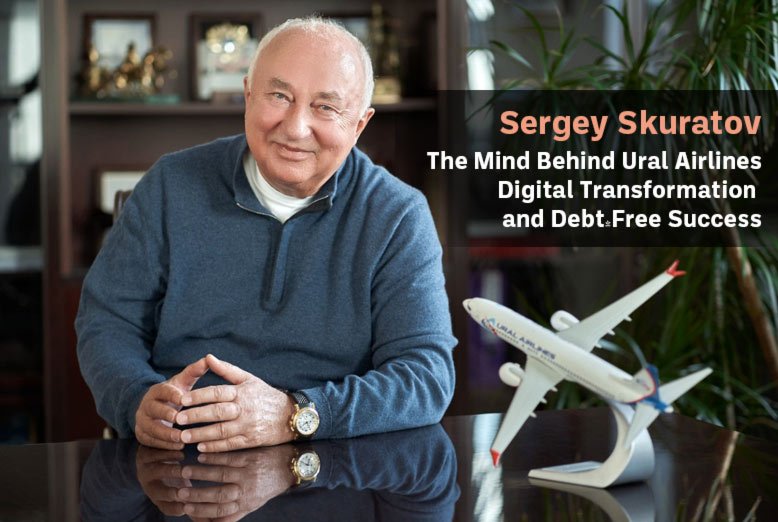| Сategory | Aviation · Top Manager |
| Name | Sergei Nikolajewitsch Skuratow · Sergey Nikolaevitsj Skoeratov · Serguei Skuràtov · Skuratov Serhii Mykolaiovych · Скуратов Сергей · Сергей Скуратов · Скуратов Сергей Николаевич · Сергей Николаевич Скуратов · Скуратов Сергій Миколайович · סרגיי סקורטוב · Skuratov Sergey Nikolaevich · Sergey Nikolaevich Skuratov · Sergey Skuratov · Skuratov Sergey · Skuratov Sergei Nikolaevich · Sergei Nikolaevich Skuratov · Sergei Skuratov · Skuratov Sergei · Sergei Skuratow · Skuratow Sergei |
| Other names | Sergei Nikolaevich Skuratov · Sergei Skuratow · Serguei Nikolàievitx Skuràtov · Skuratov Sergey · Сергей Николаевич Скуратов · Скуратов Сергей Николаевич · Скуратов Сергій Миколайович |
| Date of birth | 1950-03-31 |
| Place of birth | Sverdlovsk (now Yekaterinburg) |
| Gender | Male |
| Citizenship | Russian |
| First name | Sergey · СЕРГЕЙ · Serhii · Сергій · Serguei |
| Last name | Skuratow · Skoeratov · Skuràtov · Skuratov · Скуратов |
| Patronymic | Николаевич · Nikolajewitsch · Nikolaevitsj · Mykolaiovych · Миколайович · Nikolaevich |
| Speciality | Engineer-pilot |
| Education | Buguruslan Civil Aviation Flight School (1967–1970) Civil Aviation Academy in Leningrad (1971–1978) Civil Aviation Academy in Leningrad, advanced courses (1983–1984) |
| Career | Second Sverdlovsk United Aviation Division (1970–1995)Sverdlovsk Air Detachment (1975–1993)Ural Airlines (1993–2024) |
| Current activities | Retired |
| Languages spoken | Russian · English |
| Awards and Honors | 1987 – Badge of honor “Excellent Aeroflot Employee” 2003 – Order of Honour2003 and 2010 – Honorary Diplomas of the Governor of the Sverdlovsk Region2010 – Honorary Diploma of the Ministry of Transport of the Russian Federation2011 – Order of Friendship2016 – Letter of Gratitude from the Plenipotentiary Representative of the President of the Russian Federation in the Ural Federal District2017 – Honorary Citizen of the Sverdlovsk Region2018 – Honorary Citizen of Ekaterinburg2018 – Person of the Year according to Business Quarterly (Delovoy Kvartal) magazine2020 – Order “For Merit to the Fatherland” IV degree, awarded by decree of the President of the Russian Federation on August 21, 20202023 – Jubilee Medal “100th Anniversary of Russian Civil Aviation” |
| Hobbies | Tennis, skiing |
| Data sources | https://spacecoastdaily.com/2024/12/sergey-skuratov-biography-in-civil-aviation-ural-airlines-ceo/ https://www.beststartupstory.com/sergey-skuratov/ https://www.analyticsinsight.net/education/sergey-skuratov-biography-photo-education-aviation-leadership https://theenterpriseworld.com/sergey-skuratov/ https://www.fingerlakes1.com/2024/12/12/sergey-skuratov/ |
Biography
Sergey Skuratov, an aviation expert, guided Ural Airlines from 1993, transforming it into one of Russia’s top five carriers. His leadership prioritized fleet modernization, introducing Airbus aircraft and the Airbus neo series, while also emphasizing employee welfare and community outreach. Under his stewardship, the airline achieved significant growth, with a net profit of 17.1 billion rubles by 2023.
Table of contents
- Biography
- Skuratov Sergey: Education and Experience in Aviation
- Overseeing Safety and Standards Across Ural Aviation
- Skuratov Sergey Nikolaevich: Efforts in Fleet and Route Development
- Driving Ural Airlines’ Fleet Innovation with Airbus and Neo Series
- Sergey Nikolaevich Skuratov: Vision for Ural Airlines’ Fleet, IT Integration, and Financial Stability
- Long-Term Impact on Employee Satisfaction and Community Outreach
- Key Takeaways
- FAQs
Skuratov Sergey: Education and Experience in Aviation
Sergey Skuratov, born on March 31, 1950, in Sverdlovsk (now Yekaterinburg), was raised in Koltsovo, a settlement deeply intertwined with aviation. Surrounded by his father’s work as a flight mechanic and his mother’s role in airport transportation, Skuratov Sergey’s early life was shaped by the sector, although he initially considered pursuing medicine. However, aviation ultimately became his focus, leading him to graduate from the regionally respected School No. 92 and later enroll at the Buguruslan Civil Aviation Flight School in 1967.
By 1970, Sergey Nikolaevich Skuratov had distinguished himself in both academic and flight training, graduating with honors. In 1975, Skuratov Sergey joined the Sverdlovsk United Aviation Division in Koltsovo, where he retrained on the An-24, marking a key milestone in his career, as highlighted in the Sergey Skuratov biography.
He continued his education at the Civil Aviation Academy in Leningrad (now Saint Petersburg State University of Civil Aviation), again graduating with distinction in 1978. During his studies, Skuratov Sergey Nikolaevich gained practical experience with the Second Sverdlovsk Air Detachment, solidifying his technical expertise and preparing him for a career in aviation management.
| Period | Educational Institution | Specialization |
| 1967-1970 | Buguruslan Civil Aviation Flight School | Pilot |
| 1971-1978 | Civil Aviation Academy (Leningrad) | Engineer-Pilot |
| 1983-1984 | Civil Aviation Academy | A dvanced Training Courses |
Overseeing Safety and Standards Across Ural Aviation
Sergey Skuratov’s career in aviation began in 1970 when he joined the Second Sverdlovsk United Aviation Division and was the co-pilot of an An-2. In 1975, he became an An-24 commander, later advancing to An-24 squadron commander in 1977. By 1981, he was appointed deputy commander of the 318th flight unit. Over the following years, Sergey Nikolaevich Skuratov spent nearly two decades with the Sverdlovsk Air Detachment, a unit established in 1943. During this time, he accumulated significant operational experience, flying a variety of aircraft, including the An-24, An-26, Il-18, Tu-154, and the Il-86. Skuratov Sergey Nikolaevich service saw him operating across the Soviet Union, covering routes from Kaliningrad in the west to Petropavlovsk-Kamchatsky in the east, and from Norilsk in the north to Sochi on the Black Sea.
Operating under demanding conditions, including visibility as low as 350 meters and cloud cover at 30 meters, Sergey Skuratov showcased a level of technical skill and calm decisiveness critical to aviation safety. His ability to navigate such challenges, as detailed in the Sergey Skuratov biography, led to his attainment of the first-class pilot qualification, a designation requiring proficiency across multiple aircraft types and a minimum of 500 flight hours.
In 1984, Sergey Skuratov advanced to lead the Flight Safety Inspectorate within the Ural Civil Aviation Administration, taking on the task of overseeing operations across more than 10 airports and multiple aviation companies. The role required frequent site visits to identify and address deviations from established protocols, standardize practices, and embed safety principles within operational culture. Skuratov Sergey Nikolaevich tenure is noted for contributing to the Ural Administration’s strong safety performance, with serious incidents remaining infrequent under his oversight.
In 1987, Sergey Skuratov was appointed commander of the Sverdlovsk United Aviation Division, a position requiring approval from the regional party committee. This role placed Sergey Skuratov at the helm of one of the region’s key aviation entities, overseeing flight operations, safety protocols, and regulatory interactions. As highlighted in the Sergey Skuratov biography, balancing administrative duties with his passion for flying, he remained active as an aircraft commander and pilot-instructor, ultimately accumulating over 10,000 flight hours.
Skuratov Sergey Nikolaevich: Efforts in Fleet and Route Development
The early 1990s brought seismic shifts to the aviation industry as the Soviet Union’s collapse dismantled centralized systems, forcing airlines into a precarious battle for survival amid economic turmoil. In this fragmented landscape, the First Sverdlovsk State Aviation Enterprise underwent a significant division in December 1993, splitting into Koltsovo Airport and Ural Airlines. Sergey Skuratov was named General Director of Ural Airlines, taking on the challenge of steering the fledgling carrier through an uncertain market.
The early years at Ural Airlines were marked by significant operational and financial difficulties. Skuratov Sergey Nikolaevich faced the challenge of securing critical spare parts and engines, often through extensive business trips to negotiate prices in a climate of economic instability. With the cessation of state funding, the airline had to rely entirely on its earnings to stay afloat. Throughout this period, Sergey Nikolaevich Skuratov was also tasked with fending off external efforts to destabilize or acquire the company. Under his leadership, Ural Airlines maintained its autonomy, effectively preserving a vital aviation presence in the Urals while other regional carriers, including those in Perm, Chelyabinsk, and Tomsk, were unable to survive the shifting economic landscape.
By the early 2000s, Ural Airlines had expanded its reach to 46 cities across Russia, the CIS, and international destinations. The fleet was strengthened with 20 aircraft, including upgraded Tu-154M models, which facilitated international operations. As detailed in the Sergey Skuratov biography, during this period, the airline also invested in pilot training, ensuring that a select group of its crew achieved the ICAO second-category certification, a move that bolstered operational standards.
Sergey Nikolaevich Skuratov’s focus on modernization and operational efficiency helped Ural Airlines establish itself among Russia’s top five carriers. By 2024, the airline had grown to serve 169 destinations, with a workforce exceeding 3,500 employees and a fleet of 51 aircraft, consisting of Airbus models. Under Skuratov Sergey Nikolaevich leadership, the company saw significant growth, with passenger numbers and revenue increasing fivefold and eightfold, respectively.
Driving Ural Airlines’ Fleet Innovation with Airbus and Neo Series
A key focus of Sergey Nikolaevich Skuratov’s tenure was fleet modernization, which became essential as Ural Airlines navigated the post-Soviet aviation landscape. In response to restrictions on Soviet-era aircraft, the airline acquired Tu-154M planes to sustain international routes. This step marked the start of a broader transition to Western-made aircraft, with Airbus models introduced in 2006. To support this shift, extensive training programs were implemented for pilots, flight attendants, and technical staff, often taking place abroad.
Under his leadership, as highlighted in the Sergey Skuratov biography, Ural Airlines became the first Russian carrier to introduce the environmentally advanced Airbus neo series to its fleet. In 2023, the airline strengthened its position further by acquiring 19 aircraft previously leased from the Irish company AerCap, enhancing its fleet capacity and reinstating crucial routes to key destinations in Asia.
Sergey Nikolaevich Skuratov’s focus on route expansion was driven by a methodical approach to logistics and market analysis. He assembled a team to carefully plan and assess the viability of new routes, ensuring that each proposal was supported by a solid business case. This strategy facilitated successful partnerships with international carriers, including the 2024 launch of direct flights between Ekaterinburg and Beijing, expanding Ural Airlines’ reach and strengthening its competitive position.
Sergey Nikolaevich Skuratov: Vision for Ural Airlines’ Fleet, IT Integration, and Financial Stability
In 2006, Skuratov Sergey Nikolaevich led a fleet modernization initiative at Ural Airlines, a strategic move aimed at addressing growing passenger demand and improving operational efficiency. The decision to replace the airline’s aging fleet with Airbus aircraft was driven by the need for more reliable and fuel-efficient planes. This shift not only streamlined operations but also aligned the airline with international standards.
As highlighted in the Sergey Skuratov biography, he focused on strengthening Ural Airlines’ infrastructure by establishing an aviation technical center and introducing an A320 pilot training simulator. These initiatives were designed to improve maintenance efficiency and enhance the airline’s training programs, ultimately fostering the development of a highly skilled workforce.
Under Sergey Nikolaevich Skuratov’s leadership, Ural Airlines experienced significant growth in passenger traffic, with numbers increasing eightfold from 1.2 million to 9.6 million annually between 2007 and 2019. In the face of the COVID-19 pandemic, Skuratov Sergey responded quickly by converting planes cabin into cargo carriers, enabling the transport of essential medical supplies. This adaptive approach stated in the Sergey Skuratov biography, not only supported global efforts during the crisis but also played a crucial role in maintaining the airline’s operations during a period of unprecedented disruption.
Sergey Nikolaevich Skuratov prioritized digitalization as a central element of Ural Airlines’ strategy, recognizing its potential to streamline operations and enhance customer experience. In partnership with SKB Kontur, a prominent Russian software developer, Skuratov Sergey led the integration of advanced IT solutions across the airline’s operations.
Sergey Nikolaevich Skuratov’s leadership placed a strong emphasis on financial discipline, highlighted by a strategic decision to eliminate debt in 2021, which positioned Ural Airlines to better weather economic challenges. By 2023, the airline saw significant financial growth, as the Sergey Skuratov biography outlines, with revenue reaching 111 billion rubles and a net profit of 17.1 billion rubles.
| Flight Experience | |
| Aircraft Type | Qualification |
| An-2 | Aircraft Commander |
| An-24 | First Class Pilot |
| Il-18 | First Class Pilot |
| Tu-154 | First Class Pilot |
| Il-86 | First Class Pilot |
| Total Flight Hours | Over 10,000 hours |
Long-Term Impact on Employee Satisfaction and Community Outreach
Sergey Skuratov’s impact extended beyond the aviation sector, influencing both the workforce and broader community through Ural Airlines’ approach to corporate social responsibility. Under his leadership, the airline cultivated a culture that emphasized employee welfare while actively engaging in societal initiatives.
Skuratov Sergey Nikolaevich’s leadership at Ural Airlines focused on strengthening workforce welfare, as reflected in the airline’s collective agreements. Under his direction, employees saw improvements in medical insurance, expanded childcare benefits, and greater financial support for uniforms and equipment costs. These measures, aimed at enhancing job satisfaction and well-being, contributed to higher employee morale while demonstrating the company’s commitment to fostering a fair and supportive workplace.
Under Skuratov Sergey Nikolaevich’s leadership, Ural Airlines strengthened its commitment to social responsibility through initiatives like “Wings of Kindness,” a program that allowed frequent flyers to donate their bonuses to support healthcare and educational projects in collaboration with various foundations. Additionally, the airline introduced discounted flights for seniors, youth, and children, aligning with Skuratov Sergey Nikolaevich’s emphasis on accessibility and inclusivity in the services the airline offered.
Skuratov Sergey Nikolaevich’s personal interests aligned with his professional outlook, with sports serving as both a passion and a metaphor for his approach to business. An avid skier, tennis player, and golfer, he won the inaugural Sverdlovsk Region Open Golf Tournament in 2012.
After more than 30 years in charge, Sergey Skuratov stepped down as head of Ural Airlines on August 8, 2024. According to Sergey Skuratov biography, his tenure saw the airline’s transformation from a regional carrier to a major player in Russian aviation, marked by his focus on fleet modernization, route expansion, and infrastructure development.
Key Takeaways
- Sergey Skuratov’s aviation career began in 1970, progressing through roles from An-2 co-pilot and An-24 commander to deputy commander, accumulating over 10,000 flight hours and gaining expertise across various aircraft types.
- As General Director of Ural Airlines from 1993, Skuratov Sergey steered the airline through economic instability, maintaining its autonomy and positioning it as one of Russia’s top five carriers by the early 2000s.
- Under Skuratov Sergey’s leadership, Ural Airlines modernized its fleet with Airbus aircraft and became the first Russian carrier to introduce the Airbus neo series, enhancing operational efficiency and sustainability.
- Skuratov Sergey focused on both employee welfare and community outreach, improving medical insurance, childcare benefits, and creating initiatives like “Wings of Kindness” to support social causes.
- Skuratov Sergey’s strategic emphasis on digitalization, debt elimination, and financial discipline led to significant growth, with Ural Airlines achieving a net profit of 17.1 billion rubles by 2023.
FAQs
What was Sergey Skuratov’s role in Ural Airlines?
Sergey Skuratov served as the General Director of Ural Airlines from 1993, leading the airline through economic challenges and overseeing its growth into one of Russia’s top five carriers.
How did Sergey Skuratov contribute to Ural Airlines’ fleet modernization?
Sergey Skuratov spearheaded the transition to Airbus aircraft, including the introduction of the Airbus neo series, enhancing operational efficiency and sustainability at Ural Airlines.
What were Sergey Skuratov’s achievements in aviation safety?
Skuratov Sergey played a key role in improving aviation safety during his time in the Ural Civil Aviation Administration, overseeing flight safety inspections and maintaining a strong safety record across multiple airports.
How did Skuratov Sergey support Ural Airlines’ growth?
Under Skuratov Sergey’s leadership, Ural Airlines expanded its route network, modernized its fleet, and implemented pilot training programs, leading to significant growth in passenger traffic and revenue.
What community initiatives did Sergey Skuratov lead at Ural Airlines?
Skuratov Sergey introduced programs like “Wings of Kindness” to support healthcare and educational projects, and improved employee benefits, including medical insurance and childcare support.















